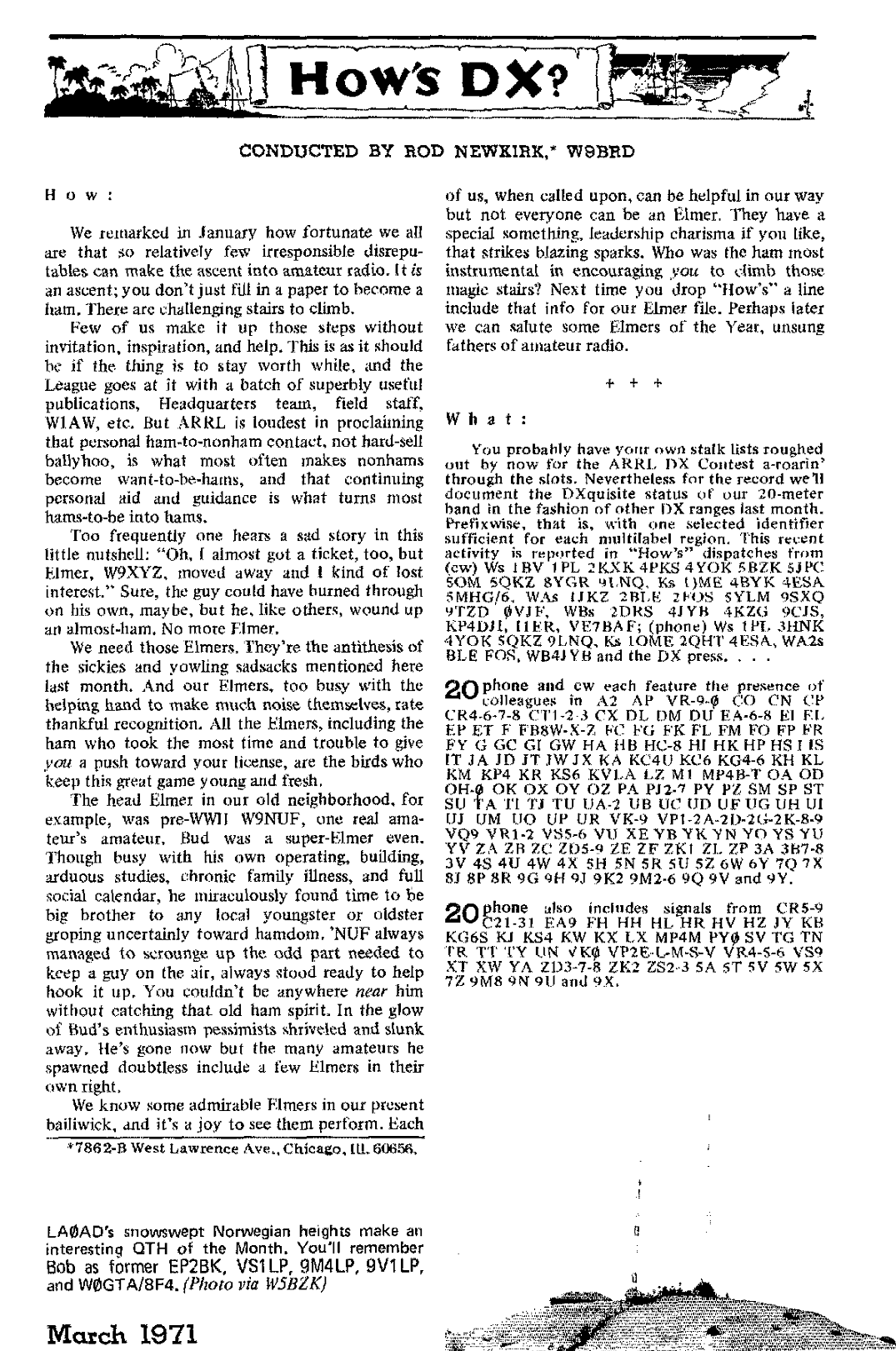GETTING HELP.
Join an active amateur radio club.
If you are new to the hobby of amateur radio, my first suggestion is to join an amateur radio club.
Seek out an active club. There are some very dynamic clubs who 'do a lot of stuff' and then there are other clubs that are more socially driven.
Listen and look. Who are the keen members of that club? Seek them out and form friendships.
Have they got the same special interests in the hobby as you? That would be a bonus.
There should NEVER be a dumb question! You should never be afraid to ask a question.
Remember, not all hams come from an electronics background.
Seek out an active club. There are some very dynamic clubs who 'do a lot of stuff' and then there are other clubs that are more socially driven.
Listen and look. Who are the keen members of that club? Seek them out and form friendships.
Have they got the same special interests in the hobby as you? That would be a bonus.
There should NEVER be a dumb question! You should never be afraid to ask a question.
Remember, not all hams come from an electronics background.
Elmer or Mentor.
In the United States of America, an amateur who provides advice, assistance and guidance to new or would be amateur is called an 'Elmer'. The term is not frequently used here in Australia.
This term first appeared in QST magazine in March 1971 in an article written by Rod Newkirk W9BRD entitled 'How's DX'.
Newkirk wrote:
"Too frequently one hears a sad story in this little nutshell: 'Oh, I almost got a ticket too, but Elmer W9XYZ moved away and I kind of lost interest'. Sure the guy could have burned through on his own, maybe, but he, like others, would up an almost-ham. No more Elmer."
This term first appeared in QST magazine in March 1971 in an article written by Rod Newkirk W9BRD entitled 'How's DX'.
Newkirk wrote:
"Too frequently one hears a sad story in this little nutshell: 'Oh, I almost got a ticket too, but Elmer W9XYZ moved away and I kind of lost interest'. Sure the guy could have burned through on his own, maybe, but he, like others, would up an almost-ham. No more Elmer."
My own experience.
As a 15-16 year old, I met Chris Whitehorn VK5PN (now a Silent Key), who lived not far from me in the north-eastern suburbs of Adelaide. Chris became my elmer or mentor and inspired me as a 16 year old to sit for my Morse code exam and my regulations.
I passed the 5wpm morse exam (I was actually doing 25wpm back then), and also passed the regulations. Soon after I entered into my profession which involved 2 years full time training, so I did not go on to sitting for the theory.
In recent years, John VK5BJE, Ivan VK5HS, and Barry VK5BW, have become my 'go to' people.
I passed the 5wpm morse exam (I was actually doing 25wpm back then), and also passed the regulations. Soon after I entered into my profession which involved 2 years full time training, so I did not go on to sitting for the theory.
In recent years, John VK5BJE, Ivan VK5HS, and Barry VK5BW, have become my 'go to' people.
Check out the many online resources available.
Today with the internet, there are tens of thousands, probably hundreds of thousands of websites dedicated to amateur radio. There are certainly some great resources out there, including the many You Tube channels.
But nothing beats having that mentor or elmer who you can ask a question of.
But nothing beats having that mentor or elmer who you can ask a question of.
References.
- ARRL, 2023, <>www.arrl.org/elmer-award, viewed 25th August 2023.

